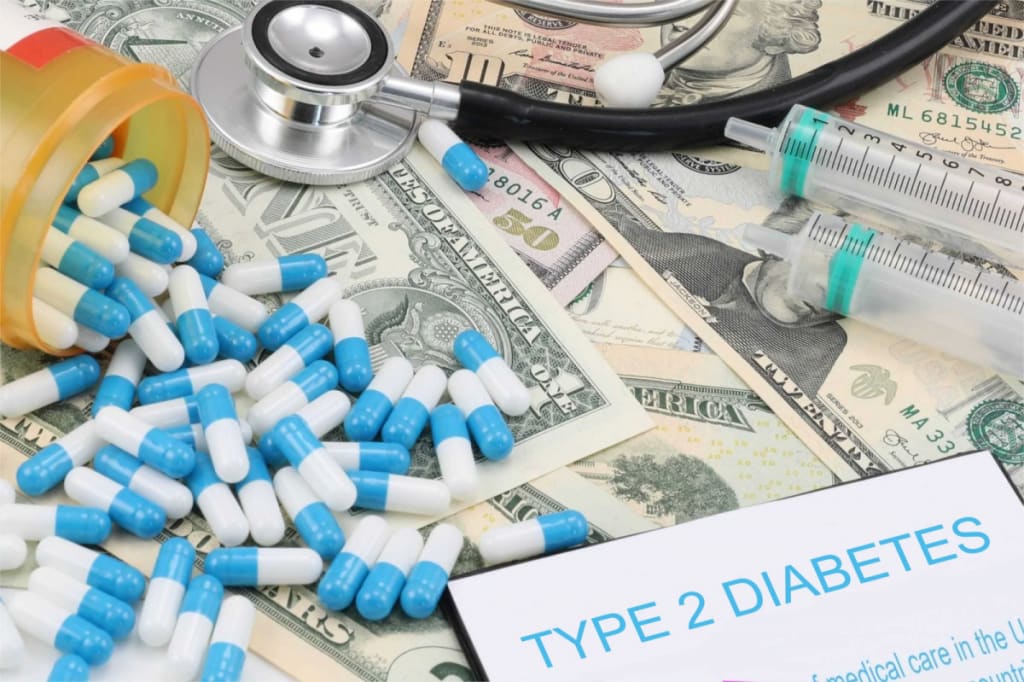
Your kidneys work as a filtration system, removing waste from your blood and excreting it in your urine. You're more prone to developing kidney disease if you have type 2 diabetes.
It isn't something that occurs to everyone who has diabetes, but it is a common side effect that evolves over time if your diabetes isn't controlled well.
Diabetic kidney disease (DKD), chronic kidney disease (CKD), diabetic nephropathy, or diabetic kidney disease are all terms used to describe this condition.
Kidney stones are more than twice as likely if you have type 2 diabetes. Using insulin to treat type 2 diabetes increases your possibility even more. People with severe diabetes, whose blood sugar levels are at their highest, are more likely to develop kidney stones.
Firstly, let’s discuss the meaning of diabetic kidney disease.
What is diabetic kidney disease?
Diabetes causes diabetic kidney disease, which is a kind of kidney disease. Kidney disease is most widely caused by diabetes. Diabetic nephropathy is the common name for it.
For several people with diabetes, nephropathy, or kidney disease, is one of the most serious conditions. In the United States, it is the main cause of kidney failure.
Nephropathy, like other diseases associated with type 2 diabetes, has very few initial symptoms or warning signs. It can cause damage to the kidneys for up to a decade before the first symptoms appear.
Did you know? As per the National Kidney Foundation study, nearly 90% of people with kidney disease are unaware that they have it.
The link between diabetes and kidney stones
Insulin deficiency from diabetes (when your cells block responding to insulin) can cause calcium levels in your urine to rise. Kidney stones are more likely as a result of this.
When you have type 2 diabetes, your urine can become more acidic due to high insulin levels. This could result in uric acid stones, which are a type of kidney stones.
Causes of Diabetic kidney disease
Kidney disease is caused due to a variety of factors. Its emergence is thought to be linked to years of unrestrained blood glucose. Other factors, such as genetic predisposition, are likely to be involved.
Because the kidneys are continuously eliminating excess glucose from the blood, they become overloaded over time, particularly in people with type 2 diabetes. The nephrons become inflamed and harmed, and they lose their ability to function properly.
Prevention measures of diabetic kidney disease
The following are the primary ways for preventing diabetic kidney damage:
The best way to keep your kidneys healthy is to keep a close eye on your diet. Diabetics who have only a partial kidney function must be especially careful to maintain their blood glucose levels, blood cholesterol levels, and lipid concentrations.
Daily exercise is also important if your doctor recommends it.
Angiotensin-converting enzyme (ACE) inhibitors are types of blood pressure medications, have been shown to slow kidney disease.
To relieve the strain on your kidneys, your doctor may advise you to eat less protein.
If you're a smoker, you should quit right away. Cigarette smoking has been related to the development of kidney disease.
A sodium-glucose cotransporter-2 inhibitor or a glucagon-like peptide-1 receptor agonist are two other choices available for people with type 2 diabetes and chronic kidney disease.
The Bottom-line
Diabetes can cause kidney damage that worsens over time. You can, even so, take steps to protect your kidney's healthy and slow kidney damage to avoid or postpone kidney failure.
However, the majority of diabetic kidney disease patients do not finish up with kidney failure. The key is to maintain type 2 diabetes under control, take care of your health, and follow your doctor's recommendations for tests and treatments.
If you are a diabetic and found any kidney stones signs, you should discuss it with your doctor as soon as possible. Our kidney stone supplement can even assist you to restrict its growth. It is a kidney stone supplement with multiple patents and is a well-known kidney stone dissolver supplement.
In vivo tests, Kidney C.O.P.® Calcium Oxalate Protector showed that its optimized equation slows the formation of calcium oxalate crystals. It is 99% effective against kidney stones growth and also benefits overall kidney health. You can visit our website for more information!





Comments
There are no comments for this story
Be the first to respond and start the conversation.